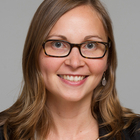Sustainable Development Goals: Pick and choose - or integration at last?
Heiner, Janus / Sarah HolzapfelThe Current Column (2016)
Bonn: German Development Institute / Deutsches Institut für Entwicklungspolitik (DIE) (The Current Column of 1 February 2016)
Bonn, 1 February 2016. Since 1 January 2016, the Sustainable Development Goals (SDGs) guide development efforts around the world. 2016 will be about implementation. The key question is: How do we translate 17 goals and their 169 targets into policy making? One option is to continue business as usual and start selectively. Each country could pick and choose from the menu of goals and targets. A better option is to transform today’s policy making into a more coherent and integrated approach.
What do we mean by integration? Policy makers have long thought in silos. They often fail to understand and account for the trade-offs and synergies across sectors and countries, resulting in incoherent policies and adverse social and environmental impacts. For example, EU and US farm subsidies have hidden costs: they lead to a loss of competitiveness for unsubsidised developing country farmers. Also, social progress in the Millennium Development Goals (MDGs) has to some extent been to the detriment of the environment.
The SDGs are an opportunity for change because they are potentially integrative. They combine needs of people and planet. Each goal is interconnected with other goals of the agenda. Take, for instance, SDG2 “End hunger, achieve food security and improved nutrition, and promote sustainable agriculture”. Ending hunger is closely related to poverty alleviation (SDG1). There is enough food to feed the world population, but it is estimated that 795 million people are undernourished today. Agriculture is inseparable from the SDGs on water (SDG6), energy (SDG7) and climate change (SDG13). Agriculture accounts for 70 % of water consumption and 30 % of energy consumption and greenhouse gas emissions globally. Overall, SDG2 on “ending hunger and sustainable agriculture” is directly connected to 62 of the 169 SDG targets.
The bottom-line is that progress or failure towards achieving one goal inevitably affects progress towards the other goals. Similarly, policies of individual governments have an influence on the achievement of the SDGs in other countries and globally. Still, actors at all government levels hesitate to move towards greater integration. Slow bureaucracies, protecting interests and missing capacities are among the underlying reasons. But integration is possible. In fact, there are three areas, where, despite challenges, integration is moving ahead.
First, policy integration is needed across thematic issues and policy areas. A growing number of initiatives facilitate a multi-sectoral approach. The Food and Agriculture Organization (FAO), for example, has developed the “Water-Energy-Food Nexus” concept. The nexus tool helps to better understand and evaluate the synergies and tradeoffs between the three areas. In West Africa, this innovative “bottom-up” approach has contributed to an integrated agenda at regional level. Nevertheless, multi-sectoral approaches are still the exception. In fact, some development actors perpetuate the old divisions between development and environment. They promote the “leaving no one behind” part of the SDGs above other parts of the agenda.
Second, policy integration is required between governance levels and across countries. Germany, the United States, and other rich countries are already moving ahead in implementing the SDGs. They acknowledge that our consumption and production patterns directly impact other countries. German chancellor Angela Merkel announced that Germany’s National Sustainability Strategy will be revised in the light of the SDGs. Other countries, such as the United Kingdom (UK), have stated that there is no plan to implement the SDGs at home. Yet, the UK’s domestic policies, like financial regulations or subsidies, have a far greater impact on sustainable development abroad than their foreign aid. Such a disconnect between development at home and abroad prolongs the outdated divide between developed and developing countries.
Third, policy integration is necessary between actors in development cooperation. Research on aid and development effectiveness in Myanmar and Rwanda indicates that better coordination can improve the impact of aid. Yet, developing countries often face a fragmented and uncoordinated landscape of partners such as non-governmental organisations, private companies and donors. All want to cooperate towards achieving sustainable development, but apply different result frameworks, indicators and strategies.
The SDGs provide a global framework that enables integration. The world, especially governments, cannot afford to keep picking and choosing. They must achieve integration now through coherent national sustainability strategies, coordinated global action, and a harmonized development cooperation approach. However, Integration will not come on its own. Governments have to be made accountable for the cross-sectoral and global impacts of their policies. Therefore, integration should be an essential part of the new SDG follow-up and review framework of the United Nations.


